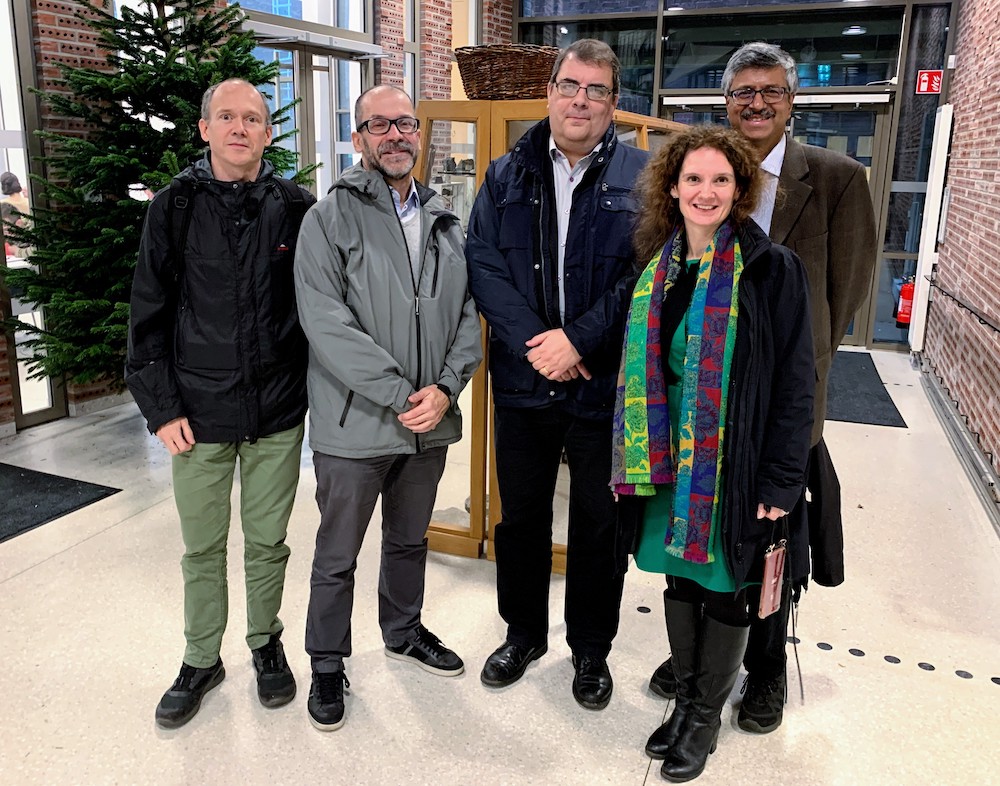Broad funding for energy within the School of Architecture and the Built Environment (ABE)
School visit, Energy Platform, ABE

A number of research projects within the energy field are accommodated in the ABE school. Issues that were raised during the Energy Platform's visit included the concrete for hydropower installations, industrial collaborations and the global management of energy issues.
The Energy Platform's visit to the ABE school coincided with KTH Royal Institute of Technology's annual conference on sustainable development within research: . The visit developed into a briefing on the continuing research into civil and architectural engineering as well as history of science.
Anders Ansell, Professor in Concrete Structures, gave an account of the ongoing collaborations with industry, including the aim to share laboratory facilities.
"We work relatively extensively with infrastructure for energy production and distribution. The researchers mainly work with heavier infrastructure, such as dams and power plants."
Erik Nordström is Adjunct Professor at the ABE school and divides his time between KTH and Vattenfall. Here, the main focus is on the further development of the existing infrastructure for a future with a greater energy mix.
"Our work is to adapt the installations for the future. For my part, I work mainly with structures that support energy production, but also material issues.
Among others, we collaborate with the Swedish Hydropower Centre through a competence centre for construction technology and infrastructure with the administrative location at Luleå University of Technology."
Per Högselius, Professor of History of Technology at the Division of History of Science, Technology and Environment, also participated in the visit. Among other things, he discussed the ongoing research into the global development of nuclear power, focusing on its dependence on water, as well as the global management of energy issues.
"The project includes a comparative study of the development of wind power in various countries, based on, among other things, the question of why Sweden was such a late starter in this field."
The research has a human-centred socio-technical approach. Research is also ongoing in this regard into the liberalisation of the energy sector in Sweden, based on the question of where the power was centred.
"Overall, we are highlighting the human aspect in the development of the energy system", says Per Högselius.
The ongoing research into ecosystem services and biomass forestry was also highlighted during the visit. As well as the work on research into the planning and analysis of sites for new wind power plants.
During the visit there was an upswing of interest in the doctoral school, arranged within the framework of the Energy Platform. Next year, KTH will host the school where the doctoral students will be given multidisciplinary skills in, among other things, systems engineering, teamwork, presentation techniques, design-thinking and peer learning.
The Energy Platform was represented by Director, Lina Bertling Tjernberg, Vice Director, Christophe Duwig, as well as Rajeev Thottappillil and Ilya Sychugov, members of the platform's reference group.
Text: Magnus Trogen Pahlén
